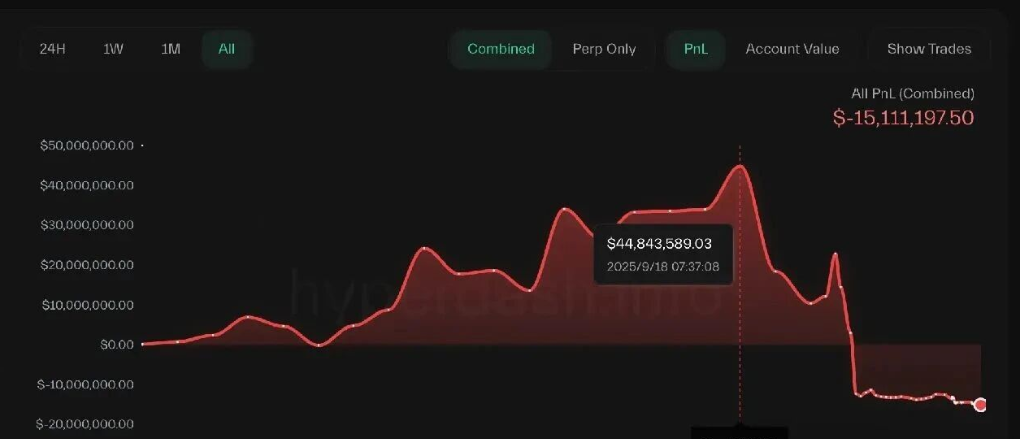IRS Is About To Relax Tax Rules For Crypto Giants In the US
The IRS and Treasury have eased CAMT rules, ensuring crypto firms aren’t taxed on paper profits. This move aligns digital asset taxation with realized income and answers industry pressure.
The US Treasury Department and the Internal Revenue Service (IRS) are preparing to relax a proposed tax rule that subjected crypto companies to a 15% minimum tax on unrealized gains from their digital asset holdings.
This new guidance responds to significant pushback from companies like MicroStrategy and Coinbase. They argued that taxing paper profits on crypto was unfair and inconsistent with the treatment of traditional assets like stocks and bonds.
IRS Eases Corporate Crypto Tax Burden
The Treasury Department and IRS issued interim guidance to ease the financial burdens of the Corporate Alternative Minimum Tax (CAMT).
Today, the US Senate Finance Committee continued the conversation on the taxation of digital assets during a hearing led by Chairman Mike Crapo.
“Currently, our tax code does not provide straightforward answers for many digital asset transactions, whether someone is buying a cup of coffee, donating to charity, investing, lending, mining or staking,” Crapo said, adding, “lingering tax uncertainty also makes the US a less attractive place to do business and invest, and hurts tax compliance.”
The confusion surrounding CAMT gained momentum recently due to Congress’s focus on developing new digital asset taxation policies.
The Unrealized Gains Tax Trap
The Corporate Alternative Minimum Tax (CAMT) refers to a 15% minimum tax created by the 2022 Inflation Reduction Act. It’s levied on the largest corporations, typically those reporting over $1 billion in average annual income.
The tax is calculated based on the profit they report to shareholders on their financial statements.
As a result of Treasury and IRS interim guidance issued yesterday, Strategy does not expect to be subject to the Corporate Alternate Minimum Tax (CAMT) due to unrealized gains on its bitcoin holdings.
— Michael Saylor (@saylor) October 1, 2025
In December 2023, the IRS introduced the Financial Accounting Standards Board (FASB) rules for crypto. These require companies to record their digital asset holdings at fair value.
Any fluctuation in crypto market prices, even an unrealized gain or loss from an unsold asset, must be reflected in the company’s net income statement.
Without the new tax guidance, a corporation simply holding crypto that appreciated in value would have to include that paper profit in its Adjusted Financial Statement Income (AFSI).
This situation contradicts traditional tax law, which generally only taxes income once it is realized through a sale or exchange.
This new guidance allows corporations to disregard unrealized gains and losses from digital assets when calculating their AFSI. Instead, the tax will only apply when the company sells, exchanges, or uses the digital assets.
The move also aligns with how income is generally taxed under the regular system.
Lobbying and Congressional Allies Secure Tax Relief
This new guidance responds to companies’ significant pushback. In January, MicroStrategy, Coinbase, and other industry groups submitted a formal letter to the IRS arguing that taxing paper profits on crypto was unfair and could force companies to sell assets to pay taxes.
These companies also subsequently acknowledged the significant tax risk in their regulatory filings. They explicitly warned that CAMT could subject them to a substantial tax liability starting the 2026 tax year.
Republican Senators, including Cynthia Lummis, wrote to the Treasury Secretary urging the department to issue guidance to mitigate the tax burden. They echoed the industry’s concerns that taxing paper profits would discourage US investment.
Disclaimer: The content of this article solely reflects the author's opinion and does not represent the platform in any capacity. This article is not intended to serve as a reference for making investment decisions.
You may also like
Google Finance Integrates AI and Prediction Market Data for Smarter Insights

Kazakhstan launches a billion-dollar crypto fund with seized assets

Ripple Avoids Wall Street After SEC Victory

The Story of Brother Machi's "Going to Zero": Just Be Happy

